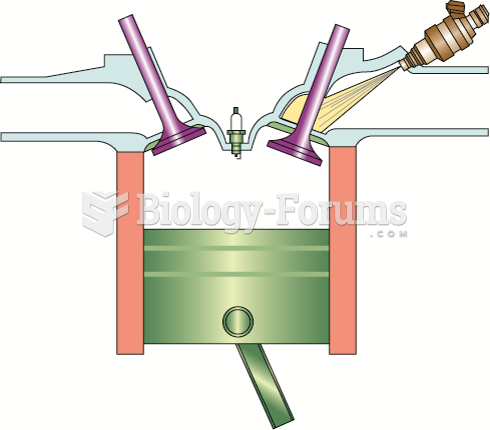|
|
|
Recent studies have shown that the number of medication errors increases in relation to the number of orders that are verified per pharmacist, per work shift.
A recent study has found that following a diet rich in berries may slow down the aging process of the brain. This diet apparently helps to keep dopamine levels much higher than are seen in normal individuals who do not eat berries as a regular part of their diet as they enter their later years.
The first successful kidney transplant was performed in 1954 and occurred in Boston. A kidney from an identical twin was transplanted into his dying brother's body and was not rejected because it did not appear foreign to his body.
On average, the stomach produces 2 L of hydrochloric acid per day.
More than 2,500 barbiturates have been synthesized. At the height of their popularity, about 50 were marketed for human use.
 Older participants remember more information than younger participants when material has emotional ...
Older participants remember more information than younger participants when material has emotional ...
 Use a vacuum or fuel line hose over the spark plug to install it without danger of cross-threading ...
Use a vacuum or fuel line hose over the spark plug to install it without danger of cross-threading ...





